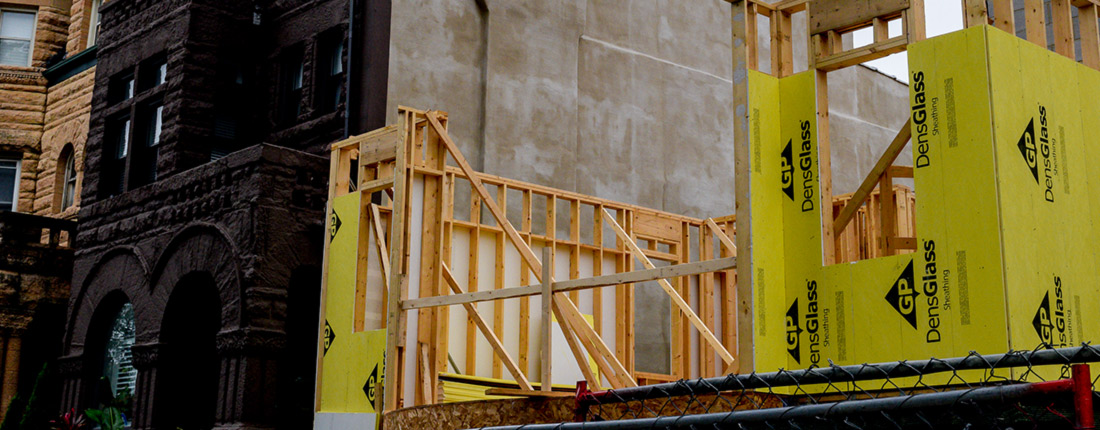Topic(s): Community Revitalization, Land Banks
Community Progress Calls on FHA to Improve Access to Rehab Mortgages
May 25, 2023

On April 17, 2023, the Center for Community Progress submitted a response to the Federal Housing Administration (FHA)’s Request for Information (RFI) Regarding Rehabilitation Mortgages. A rehabilitation mortgage, often called a rehab mortgage, is designed to help homeowners improve their existing home or buy a home needing repair or renovation.
You can read our full response here.
The RFI was issued in February 2023 and sought feedback on barriers to the use of the 203(k) program and ways FHA can improve its rehab mortgage policies and programs to expand the preservation, renovation, and expansion of the affordable housing supply. Many communities that Community Progress serves struggle to access financing products, and loan products for both acquisition and rehabilitation are even scarcer. Community Progress commends leadership at HUD and FHA for this effort and understanding of the need to make opportunities like the 203(k) program more accessible and functional.
The 203(k) program has the potential to be a vital community revitalization tool and homeownership opportunity for owner-occupant homebuyers. The program allows homebuyers to finance or refinance the purchase of their house and cost of rehabilitation through a single mortgage, as well as allows homeowners to refinance the rehab of their existing home.
Due to systemic inequities and discrimination in the housing market, homeownership is the primary contributor to the racial wealth gap. And lower rates of homeownership are a direct result of limited access to the financial market. In 2018, only 5 percent of the conventional mortgage market were loans to Black borrowers, compared to 15 percent of the FHA/VA market, which are government-mandated to serve underserved borrowers. Just ten lenders were responsible for originating 24 percent of mortgage loans to Black borrowers in 2019—only three of those lenders were traditional depository banks. Black applicants are also more than twice as likely to have their loan applications rejected.
Our response was informed by our longstanding engagement in disinvested communities with vulnerable populations underserved by traditional housing financing and our work supporting land banks that repurpose vacant inventory into affordable homeownership opportunities. We conducted targeted outreach to stakeholders with experience leveraging (or trying to leverage) the 203(k) product and received responses from both practitioners working with 203(k) to provide homeownership opportunities and end-users who financed their own homes with a 203(k) loan.
These conversations led to the following recommendations:
- The 203(k) program needs more education and direct outreach. Many buyers, originators, and contractors don’t even know the product exists.
- There is a dearth of qualified 203(k) FHA consultants. FHA 203(k) consultants receive highly favorable feedback, but there are not enough of them. More consultants will make the program more accessible, and originations and rehab projects move more smoothly and quickly.
- Residential construction and rehab costs and the demand of licensed contractors and skilled trades create a challenging environment for building and rehab activity. Finding contractors willing to work with the 203(k) payment process and timeline is difficult given the competitiveness of the field.
Community Progress also encourages FHA to partner with land banks as they work to improve the 203(k) program.
Given their shared objectives and the inventory of land bank properties in need of rehab ripe for 203(k) mortgage projects, FHA could expand the reach of the program by partnering with land banks in the program redesign. Most land banks have some type of enforcement mechanism or claw back provision to hold purchasers accountable, which can pose challenges for FHA underwriting. For that reason, ways to streamline access to land bank properties and complement land bank processes should be considered and incorporated into 203(k) mortgage processes and requirements.
Additionally, some land banks serving communities whose residents have been disappointed by the 203(k) process have developed strong partnerships with local Community Development Financial Institutions Funds (CDFIs). CDFIs are lenders that aim to provide fair and responsible financing to communities that mainstream finance often doesn’t reach. FHA should learn from land banks that have worked with local CDFIs to develop alternatives to the 203(k) program and engage with CDFIs originating these 203(k) mortgage alternatives, such as the Albany County Land Bank.
Community Progress also joined with our coalition colleagues from other national nonprofit housing and consumer finance advocacy organizations as signatory to a joint letter. All responses to the RFI can be viewed on HUD’s comments page.
For questions about our continuing engagement on this issue, reach out to Rob Finn at [email protected].
Subscribe to join 14,000 community development leaders getting the latest resources from top experts on vacant property revitalization.
